Life
Sign up for our newsletter
We summarize the week's scientific breakthroughs every Thursday.
-
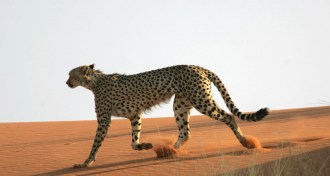 Animals
AnimalsLooking for, not catching, prey drains big cats’ energy
For some big cats, ambushing prey in quick attacks may ease the high energy cost of hunting, new studies show.
By Meghan Rosen -
 Neuroscience
NeuroscienceHigh blood sugar could worsen effects of spinal injury
Studies in people and mice suggest reining in blood sugar can improve recovery from a spinal cord injury.
By Nathan Seppa -
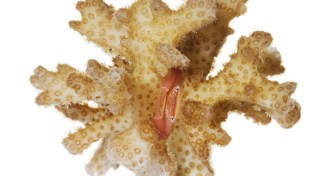 Animals
AnimalsCrabs guard coral from army of sea stars
Coral guard-crabs proved their worth during a 2008 outbreak of crown-of-thorns sea stars, with many successfully protecting their coral from being eaten.
-
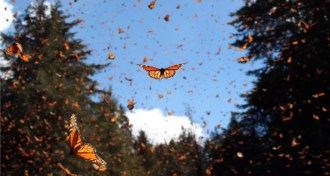 Animals
AnimalsMonarch butterflies’ ancestors migrated
The earliest monarch butterflies originated in North America and were migratory. Some of the insects later lost that ability as they moved into the tropics, a genetic analysis finds.
-
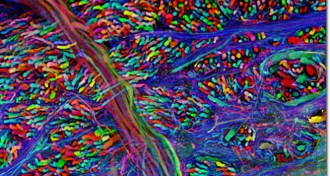 Neuroscience
NeuroscienceWhite House gives progress report on BRAIN Initiative
More pieces of President Obama’s ambitious BRAIN Initiative announced April 2013 have fallen into place.
-
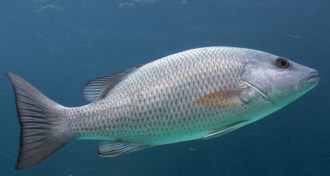 Animals
AnimalsBaby fish are noisier than expected
Gray snapper larvae may be able to communicate in open water using tiny knocks and growls.
By Susan Milius -
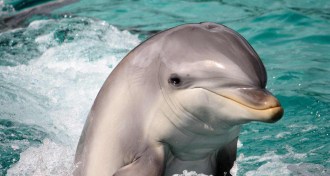 Animals
AnimalsDolphins appear to perceive magnetic fields
Bottlenose dolphins take less time to start exploring a magnetized block, suggesting they can sense magnetic fields.
-
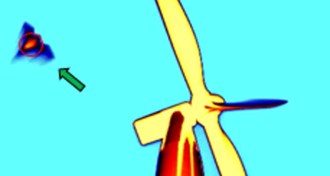 Animals
AnimalsVideos hint at why tree bats may die at wind turbines
Using heat-sensitive cameras, scientists were able to watch how tree bats interact with wind turbines and determine what behaviors may lead to their deaths.
-
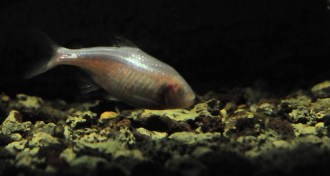 Animals
AnimalsBlind cavefish got no (circadian) rhythm
Eyeless Mexican cavefish have lost their circadian rhythm and become more efficient in the dark, a new study finds.
-
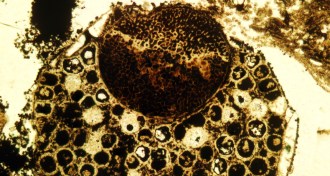 Paleontology
PaleontologyStrange fossils from China hint at early multicellular life
New fossils of strange, oblong organisms that lived 600 million years ago are giving scientists hints to how living things may have moved from being single- to multi-celled.
-
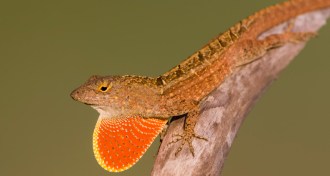 Animals
AnimalsEven on remote islands, busy ports mean more invasives
Islands with lots of trading ties are more likely to be colonized by invasive species, even when they are geographically remote, a new study of anoles reveals.
-
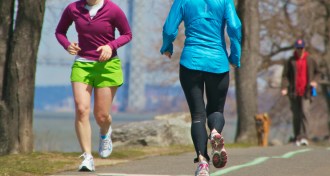 Neuroscience
NeuroscienceMighty muscles may stave off depression
Strong muscles protect the brain from stress-induced toxin associated with depression, a study in mice suggests.